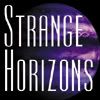Quod est veritas?
What is truth?
Pontius Pilate asked Jesus this question in John's Gospel.
Since the publication of that particular book in the first century A.D., the question has resonated. Everywhere we turn we hear about professors, authors, journalists, doctors, priests, ministers, and mentalists asking the question and providing answers. Few of these answers satisfy.
The search for truth is a perennial one for humanity. But what does truth mean for the historian?
I ask that question because historian is my profession. What is truth for me? And what role does it play in my work?
First, I think it is important to say that most modern historians do not seek truth. Our sources, the documents and objects that we study, do not permit us to say that something is certainly, or absolutely true.
We acknowledge that truth is often subjective. This is not to say that we cannot make an argument, or that we cannot answer a question with any accuracy. We can. Historians work by amassing information, analyzing that information, sometimes synthesizing that information, and then providing conclusions based on reasonable and defensible theoretical principles. We are often proven wrong. Inevitably someone arises with a better theory, or a more organized method of research, or, very luckily (in ancient history) has found a new source that previous scholars did not have the benefit to use.
Students in history courses are often appalled at the lack of knowledge that we have. They do not always see that the mass of knowledge that we have is the more shocking feature. Not knowing something is the default. It is what we know that makes our profession possible. But it is not a search for truth. Not the abstract ideal anyway. We search instead for a measure of accuracy. All of our information is weighed upon the scale of accuracy. Do we judge it to be more or less believable? All historians should be skeptics. Like the magicians who debunk the psychics and the mentalists, historians must wade through lies, deceptions, and faulty minds.
I often conduct an exercise with my students. I take a fragment of a document. I put it on the screen in a PowerPoint presentation. We read it together. Then, when they have internalized it a bit, I ask them a series of questions: If this document were the only one of its kinds, the only source we had from a particular point in antiquity, what could we tell from it? How much can we trust it?
It isn't always a fruitful exercise. Some students are more imaginative than others. It is, however, always an interesting procedure. For only in that exercise can the non-historian begin to imagine what the historian is up against. Fragments are our life's work sometimes. History, as a process, has not been kind to documentation. We have so little to work with sometimes that we are left with only our speculations. We must be good guessers sometimes, and my students always laugh when I tell them that, but it is true. We guess. A lot. We have to. We simply lack the data to do more. But, that doesn't mean that our guesses are inaccurate, because we always base them on the information we have.
History is a wonderful mystery. I know that sounds a bit trite, but I believe it captures the essence of our work. We are all hierophants, those of us who deal in the past, doing what we can to reveal the important things, the sacred and secret things that time has hidden from us.
I suppose, in the end, it is a kind of truth-seeking. While we know we will never find the truth, as such, we believe, and we work, to reveal as close a semblance to it as we can.


No comments:
Post a Comment